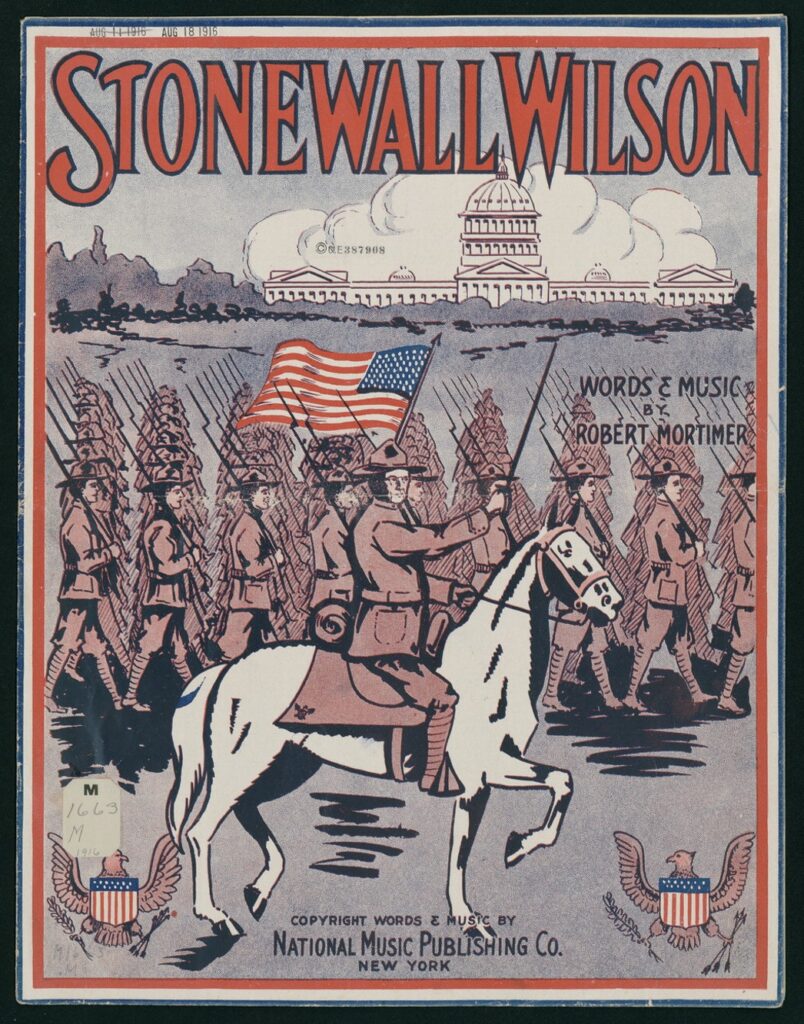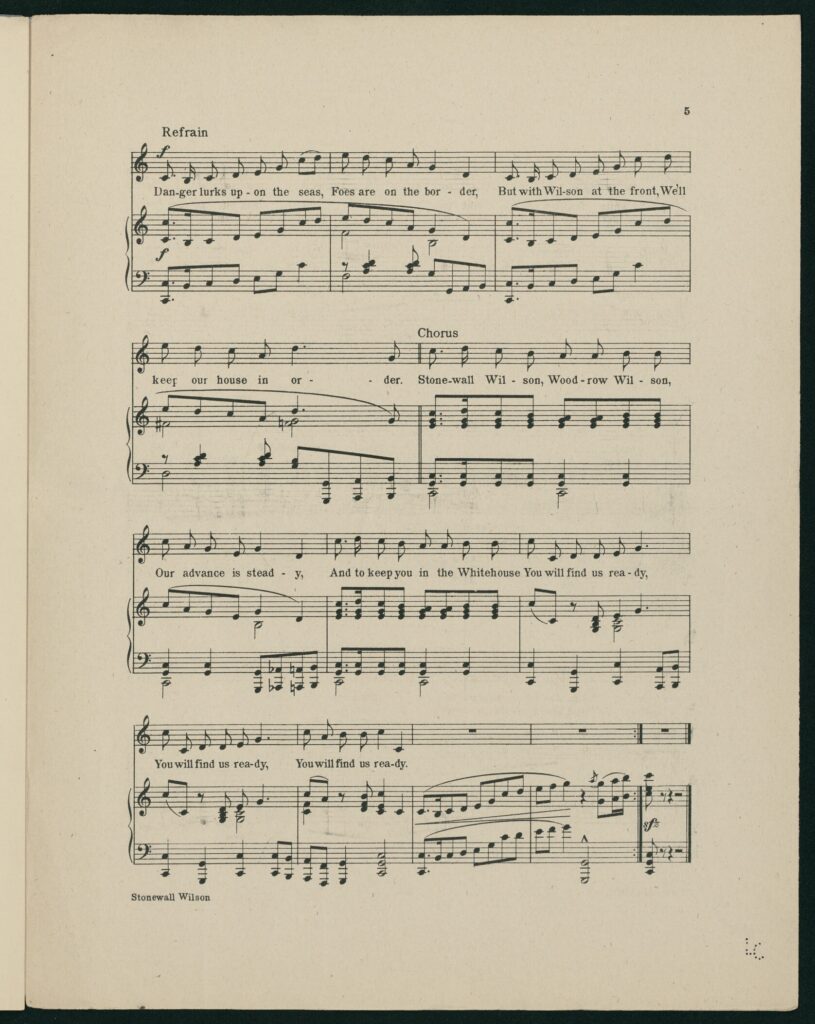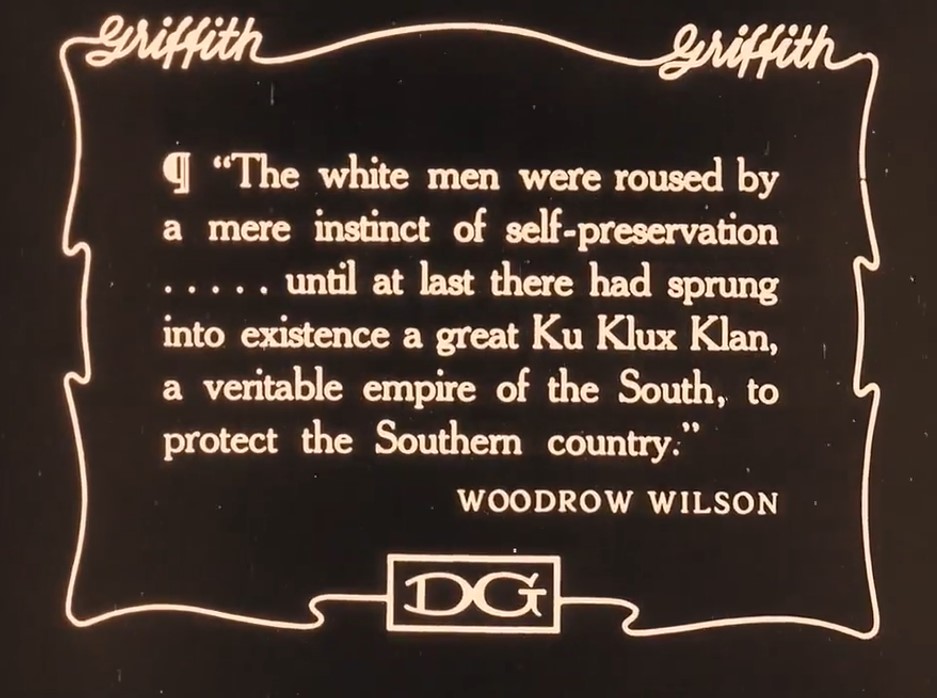Not the Stonewall You’re Looking For: Stonewall Wilson
While researching primary sources for use in one of my classes recently, I stumbled upon a piece of presidential election propaganda from 1916. It was a song titled “Stonewall Wilson.”

Songs as a means of propaganda were quite popular in the nineteenth and early twentieth centuries. In the age before television, internet, and even widespread use of the radio, election-themed tunes paired with lyrics promoting candidates was all the rage. It was also popular at the time to use these songs to project strength, often by heralding previous military achievements.
“Stonewall Wilson” is a song attempting to do this, but via the figure of Woodrow Wilson. He was not a military figure and Wilson had never worn a service uniform. This makes the song’s title, its accompanying art, and some of its lyrics seem off. Let’s dive into the lyrics in full:
“Stonewall Wilson”
Stanza 1
Wilson by all tests has proven
He’s the man to take command,
His no heedless, hasty action,
His the strong restraining hand.
No white feather in his make up,
He can bite as well as bark,
But he wastes no ammunition,
And he always hits the mark.
Refrain
Danger lurks upon the seas,
Foes are on the border,
But with Wilson at the front,
We’ll keep our house in order.
Stonewall Wilson, Woodrow Wilson,
Our advance is steady,
And to keep you in the White House
You will find us ready,
You will find us ready,
You will find us ready!
Stanza 2
Wilson by all tests has proven
He’s the man to take the wheel,
He’s the man we always look to,
When we want a good square deal.
Under Wilson peace and plenty,
Reign supreme from shore to shore,
Under Wilson we have prospered,
Could another give us more?[1]
Being a song printed in 1916, it was meant to help Woodrow Wilson win reelection. These lyrics have a lot to unpack, much of it related to events Wilson faced in his first term. The first stanza essentially notes that Wilson is fit to remain president, he thinks before acting, and he is decisive once acting.
The refrain speaks on external threats to the United States, specifically Germany’s policy of unrestricted submarine warfare and Pancho Villa’s raiding activity across Mexico’s border into the United States (which itself was prompted because the United States let Villa’s rivals for control of Mexico transfer soldiers through the United States to reposition for attacks against Villa). The refrain is meant to highlight Wilson’s strength as commander in chief, thanks to Germany’s Sussex Pledge to end unrestricted submarine warfare and through Wilson’s order for the United States military to invade Mexico in (failed) efforts to capture Villa.

The second stanza hits at the core of Wilson’s reelection campaign activity. Wilson’s promise of continued progressive reforms is mentioned, as is his efforts to officially maintain US neutrality in World War I.
Stonewall Wilson is most assuredly referencing Confederate Lieutenant General Thomas J. “Stonewall” Jackson. Despite his lack of direct military experience (Wilson’s opponent in 1916 also lacked such experience), the president was projected as a military hero. The cover of the song’s sheet music certainly adds to the reference, portraying a uniformed Wilson, riding his horse with sword drawn, leading an army through Washington DC to victory. I suppose the troops portrayed could be styled Wilson’s ‘foot cavalry.’
The comparison of Wilson to “Stonewall” Jackson may seem confusing, but there are some connections worth bringing up. Both were Virginians, with Wilson being born in Staunton and Jackson born in Clarksburg. Both were professors, with Wilson teaching at Bryn Mawr College in Pennsylvania, Wesleyan University in Connecticut, and Princeton University, where he was also appointed president. Jackson of course, taught at the Virginia Military Institute. They were both in the Confederacy during the Civil War, though Wilson was just eight years old when the war ended. Perhaps Wilson’s most famous Civil War-themed connection is his screening of the film The Birth of a Nation in the White House. The film included on one of its title cards a misquote from Wilson’s own book A History of the American People that celebrated “a great Ku Klux Klan, an ‘Invisible Empire of the South.”[2]

It is obvious the song is trying to portray Wilson as someone who projects strength, is mindful, and is capable of decisive action. It is also plain that the song is meant to connect Wilson to the Civil War to highlight that World War I was ongoing and someone of Wilson’s capabilities was needed at the nation’s helm. Finally, his link to “Stonewall” Jackson both highlights Wilson’s Southern connections, as well as hinting that he would be an excellent wartime commander in chief.
Ultimately, the 1916 election song “Stonewall Wilson” serves as a good example of how the Civil War’s memory was strongly influential in the early twentieth century, how the United States harkened to previous wars to project strength when facing another, and how the defunct Confederacy ironically remained an example of that strength fifty years after it ceased to exist.
Endnotes:
[1] The song’s sheet music and lyrics are available at the Library of Congress. Robert Mortimer, Stonewall Wilson, National Music Publishing Company, 1916, M1663.M 1916, Library of Congress.
[2] The film actually misquotes Wilson’s book. In the book the quote is “a great Ku Klux Klan, an ‘Invisible Empire of the South,’” while in the film the quote appears as “a great Ku Klux Klan, a veritable empire of the South.” Woodrow Wilson, A History of the American People, (New York: Harper & Brothers, 1903), Vol. 5, 60.
Both considered the Shenandoah Valley “home.” Folks can visit Jackson’s house in Lexington and Wilson’s house (and presidential library) in Staunton.
Great post, Neil! I’m a WWI junkie, so I am always excited when the Civil War and the Great War connect. In some ways, this song is accurate about Wilson’s military predilections, but it is misleading. During his Presidency, Wilson authorized the U.S. to take military action in Cuba, Haiti, the Dominican Republic, Nicaragua, and Mexico. Ironically. of all our war-time Presidents, Wilson was the most “hands-off” when it came to managing the military. He only met Pershing once before sending him overseas and then rarely communicated with him about military matters.
Pretty funny that only about 50 years after the ACW the US was using comparisons with famed Confederates to get a president elected!
I found something odd as well. Joseph John Davilla of New Orleans patriotic music in 1917 extorting People to serve America like Beauregrd and Lee. He later gained notoriety for composing The Mysterious Axeman’s Jazz and some songs used by the Boswell Sisters.